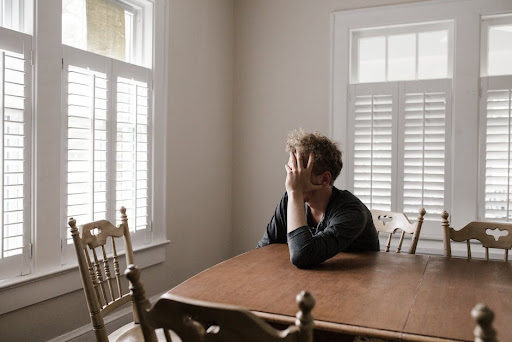Many people joke about it, but social anxiety disorder (SAD) is a legitimate, diagnosable mental health concern. Feeling awkward and nervous in social situations or in certain settings and scenarios is normal. However, feeling so uncomfortable in social situations that you rarely get out and experience sheer terror or panic is a diagnosable mental health condition.
Social anxiety disorder is estimated to affect as much as 13% of the population. Typical symptoms of SAD include:
- Worrying intensely for days or weeks before a social interaction
- Extreme fear of being judged by others, humiliated in public or unaccepted by peers
- Physical reactions to being around others such as blushing, nausea, shaking, sweating or experiencing a racing heart
- Avoiding or prolonging social interaction to a degree that it inhibits normal life
- Using drugs or alcohol to feel more comfortable in social settings
Numerous situations can spark social anxiety symptoms, and triggers vary according to the individual. Some people feel anxious by simply being in the presence of others, but triggers can also be more precise. For example, you may experience symptoms when speaking in front of people, talking to people you don’t know, or trying to make small talk.
Actionable Ways to Combat Social Anxiety
While SAD can be overwhelming and difficult, there are steps you can take for combating social anxiety:
- Recognize negative thoughts and challenge them. Challenging your outlook is one of the toughest aspects when overcoming social anxiety. Most individuals have these trademark negative thoughts that only exacerbate their anxious feelings. Learning how to challenge these thoughts can be a big part of improving social skillsand controlling anxious thoughts and feelings.
- Face your fears and avoid being avoidant. Avoidance is a big part of life for most people with SAD. You may say no to invitations more often than you accept. You probably avoid outings, prolong necessary doctor’s visits and generally avoid social contact. Facing your fears is all about taking small steps and challenging your immediate inclinations to evade social settings.
- Learn to focus on what others are doing, not what they’re thinking. It’s so easy to spend every second of your time in a social setting internalizing your feelings and emotions. Instead, focus on what people around you are doing. Avoid trying to read their thoughts and perceptions, and simply watch their actions and how they interact.
- Get out of the ordinary settings and situations. It can be helpful for individuals with SAD to step out of their typical social environments. People you know can generate more anxiety for you than those who are strangers. Consider taking a vacation, getting out of town to go shopping, or even striking up a conversation online with someone you don’t know.
- Learn to recognize how impossible ideas of perfection get in the way. What many people with SAD don’t realize is, their perfectionist tendencies could spur anxiety in social situations. Clinical perfectionism and social anxiety can go hand in hand. No one is perfect and no one else expects you to be perfect either. Take notice when SAD symptoms are stemming from your ideas of what perfection looks like in the eyes of others.
- Keep a journal and set goals. Start journaling. Record what situations caused you the most anxiety, but use it to also set reasonable goals. For example, if you had an awful day grocery shopping, write about your experience and create a goal. For example, the next time you shop, make a point to say “hi” to five people or start a conversation with a cashier instead of using self-checkouts.
- Seek treatment from outside professionals and support groups. For some people, it’s harder to dig their way out if they are feeling overwhelmed by social anxiety symptoms. If SAD significantly impedes your ability to function, it may be time to seek therapy or professional help.
Addiction Recovery Can Be Associated With Social Anxiety Disorder
Social anxiety disorder hinders one’s quality of life. Further, SAD can be common for individuals who are in recovery. It’s all too easy to slip into a pattern of avoiding social situations because of anxiety about making poor decisions or being judged. If you are working through recovery and need help with social anxiety disorder or improving social skills, reach out to Buena Vista Recovery to find out about our programs.





